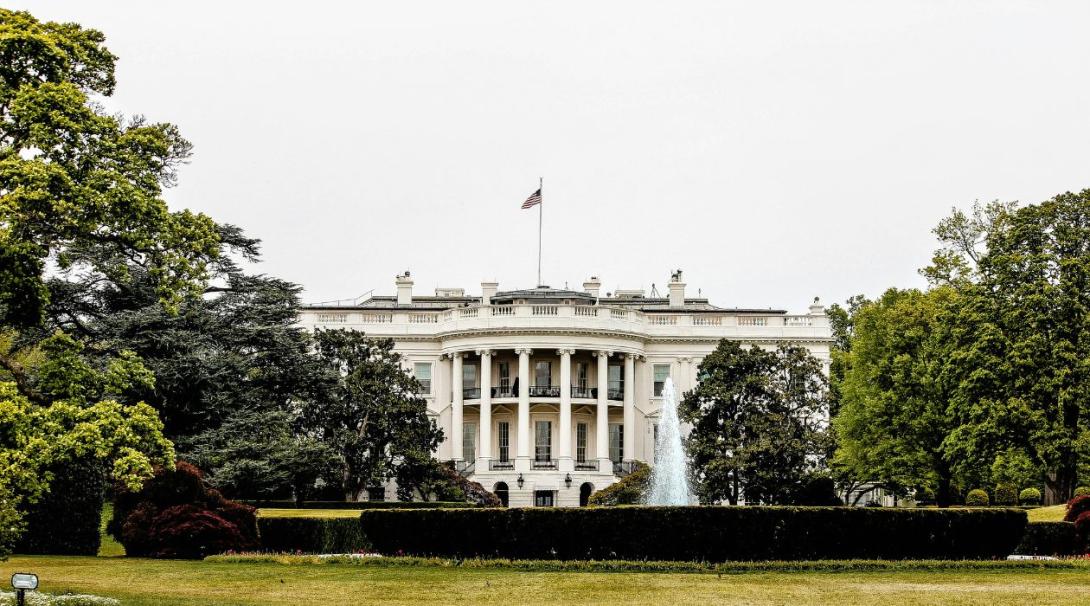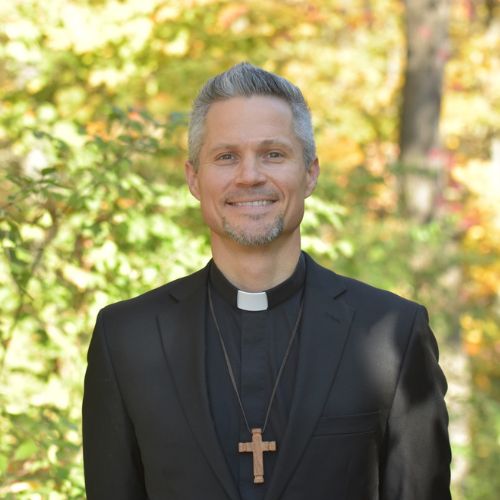
White House, Washington DC. Unsplash.
Some people feel elated with the new administration arriving in the White House next month. Others feel desperation, exhaustion, apathy, or even paralysis.
The extent of one’s involvement in the election cycle matters. Many voters, less engaged in partisan politics, cast their vote and move on. Others consumed hours of political media, knocked on doors, attended rallies, donated money, and fixated on election outcomes. They’re still studying data points and maps detailing election results, as intense emotions continue to stir.
I recognize that people will read these words inhabiting very different spaces. And I want to respect this. The following, then, are three broad areas to consider for how every Catholic might respond in these days and weeks before the inauguration.
Prudence in Action
First, let’s utilize the virtue of prudence. Prudence invites us to ask: What do I need to do in the present moment to bring about the greatest good: for myself, for others, for the country, and for God?
For some, prudence may mean stepping back from partisan politics, even if momentarily. Electoral politics can dominate our lives, and even, perhaps, become an idol. If election talk has consumed your life recently, consider taking a break. Politics is not everything, especially for Christians.
For other people, bringing about the greatest good will mean defending the dignity of those people they think are threatened in the present cultural moment. And many groups have justifiable reasons to feel threatened.
I think if we’re honest with ourselves, the inter-partisan rhetoric over the last several months has been piercing at best, and violent and dehumanizing, at worst. Vulnerable subgroups in the United States, many that contain members of the Body of Christ, have been, and continue to be, the target of hate-filled, bigoted words. Supporting the most marginalized groups, regardless of their partisan perspective, religious affiliation, or racial background, may be, for some, the most prudent and thoroughly Catholic action going forward. Catholic Charities and the United States Conference of Catholic Bishops offer great avenues for Catholics to explore how to seek to uphold the dignity of vulnerable groups in local, practical ways.
For others who are relatively pleased with the election results—likely totaling, for instance, some 58 percent of Catholics who voted for President-Elect Donald Trump—prudence may require them to encourage newly elected officials to fulfill election-cycle promises. This is a normal response to a political victory and part of the democratic process.
Nevertheless, as winners rally their newly elected leaders, Catholic prudence may require victorious partisans to challenge their politicians to carry out election promises guided by the principles of Catholic social teaching. Winning grants leaders a mandate to act, but prudence requires Catholics to demand that their leaders respect human rights and basic decency. As Catholics will likely have high-ranking members—including the vice president-elect—in positions come January, they should capitalize on this moment and appeal to our shared faith and Catholic moral commitments to influence members of the new administration.
What do I need to do in the present moment to bring about the greatest good: for myself, for others, for the country, and for God?
Remain Curious
A post-election period is also opportune to flex one’s curiosity muscles, even though this may, at times, be challenging to do.
In a polarized culture such as ours, it is tempting to replace curiosity with blame: “They’re causing today’s problems. They’re destroying our country. They need to change.” I can relate to these sentiments and am tempted to act on them as well. While some political and ecclesial actors bear responsibility, blaming rarely leads to the change we seek.
Blaming others fails because we have more power to change ourselves than to influence others. And our influence on, and ability to learn from, others significantly wanes when we lead with accusations and reproach. Rather, Catholics encounter the key to change in every mass they celebrate, which begins with a personal examination of conscience and ownership of one’s own shortcomings and failures: “I confess...” “…through my fault…”
So instead of blaming others, spend time being curious about yourself, doing a personal examination of conscience. How has this election cycle affected me? Have I contributed to hatred, including toward fellow Christians? Did I fail to act charitably online? Have I made hasty generalizations of others because of their political affiliation? Was I a sore loser or an arrogant winner? How do I need to change?
Being curious about one’s own failures is tough. But it is unrealistic to expect others to change if we have not sought this change—this conversion—in ourselves.
Following this personal examination, cultivate curiosity around meta-questions regarding the election. Much ink is being spilt around what each party can learn from the results and where America is going as a nation. Post-election periods can be fruitful moments for Catholics to begin to ask important questions of their political party and leaders.
For instance, Catholics on the right could explore whether they are willing to accept the Republican Party’s leftward slide regarding abortion and other key life issues, such as I.V.F. Or they could ponder whether they’re comfortable with a party seeking a mass deportation of migrants—an effort opposed by U.S. Bishops—that could severely disrupt the lives of people with whom they share a pew.
Catholics on the left could invite their party to consider why, even in the face of a candidate with the temperament and worrisome history like Donald Trump, so many Catholics were unwilling to cast a vote for Vice-President Kamala Harris. They could also raise concerns as to why their own party struggles to attract religiously minded individuals, or why there are so few “pro-life” Democrats remaining.
These are not the only questions to consider. And it will take some time to sort through what many in the U.S. are considering an era of Christian-partisan homelessness. Not accepting easy answers, while seeking to understand through curiosity, are excellent ways to benefit from a post-election period. This leads to my final recommendation.
It is unrealistic to expect others to change if we have not sought this change—this conversion—in ourselves.
Cross Over to Engage the Other
Elections can leave people feeling estranged, raw, and further divided than before. I witnessed countless teary-eyed faces due to partisan and ecclesial divisions during months of pre-election travel across the U.S. “I no longer talk to my daughter.” “We left our parish because we could not sit in the same pew as someone who voted that way.” “They would not shake my hand at the Sign of Peace.”
These statements and encounters broke my heart, and they multiplied as the election intensified.
The pain of these experiences can drive us deeper into the political, theological, and geographical silos that exist in this country and in our Church. When we feel threatened, and politicians and media amplify those feelings, seeking shelter within the political-cultural-theological enclaves to which we belong makes sense. Sometimes it is needed. The problem with resigning ourselves to greater alienation from “the other,” however, is that Jesus’ example and invitation to Christians call us to something more: to cross over to engage the other.
As I argue in my research on polarization and the Church’s mission, from the incarnation to his death and resurrection, Jesus constantly crossed over to the other in order to bring about a salvific moment. Eying the demoniac, most people took a different path to avoid him. Not Jesus. He walked up to him to bring salvation. Seeing his adversaries in Jerusalem, Jesus did not shy away, but crossed over to them to save us all. Rejected and abandoned by his disciples, Jesus had every reason to treat them similarly. Yet after the resurrection, Jesus crossed over to his forlorn friends to say: Peace be with you.
Crossing over to the other is not an addendum to discipleship, but an essential aspect of what it means to follow Jesus. Not only is this action needed following a heated election cycle, but research shows that crossing over is one of the best ways to deepen unity in divided times.
This could mean calling up an estranged family member, friend, or fellow parishioner, and rekindling the relationship. It could mean having coffee with someone who voted differently and genuinely listening to their perspective. Or it could mean joining one of hundreds of non-partisan and non-profit groups, such as Braver Angels, that seek to bring together people from diverse backgrounds for honest and respectful engagement. Crossing over might be as obvious, though still difficult, as returning to a parish you have long since left because of partisan-political-theological tensions, to be united once again with fellow members of the Body of Christ.
Catholics in the U.S. know that we have been here before, and we will be here again. Now that the election is over, may we discern how we are called to respond.
If you enjoyed this article, you might like...














